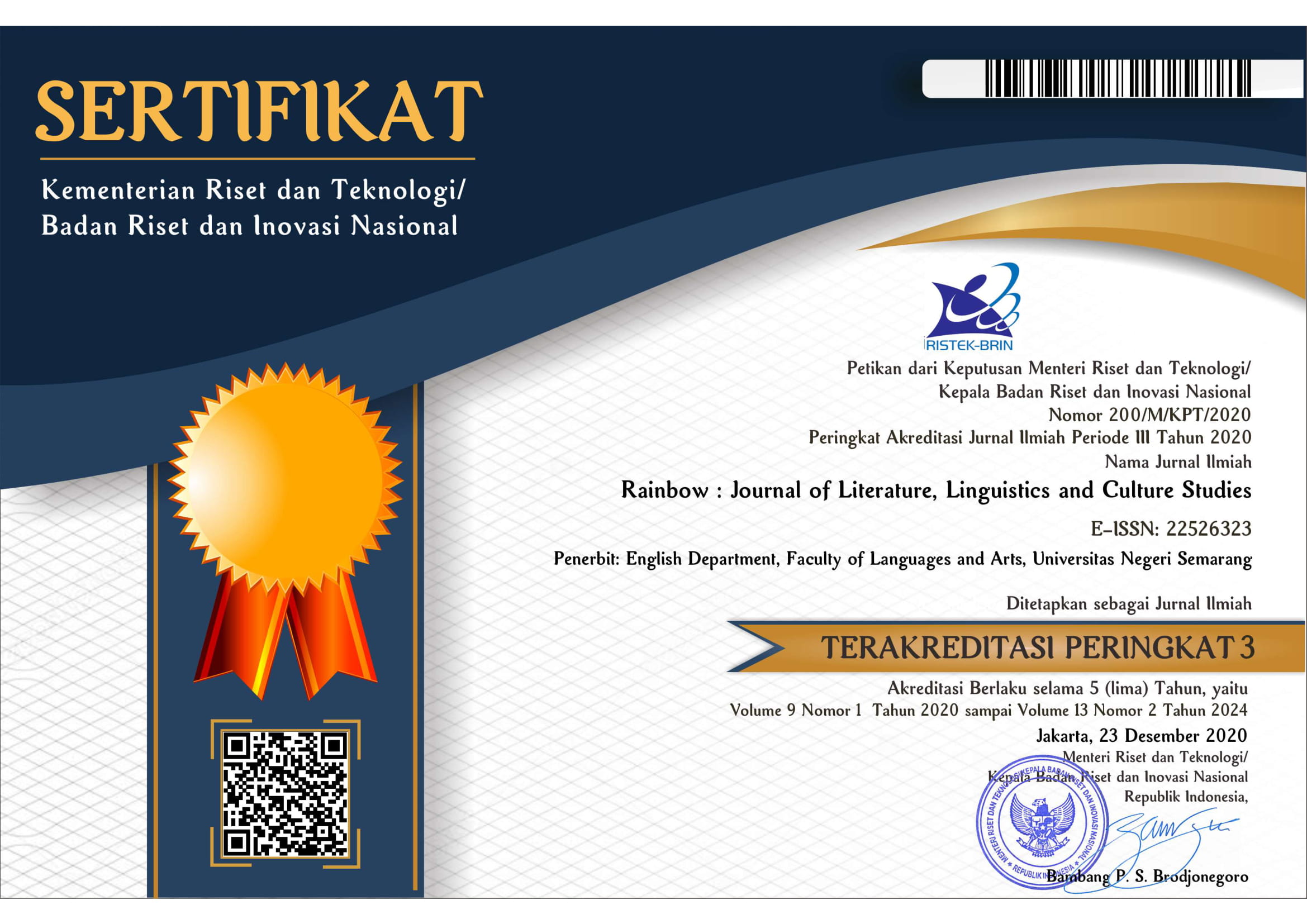Shame, secrets and gossip in ‘The Maid Servant's Story’
Abstract
‘The Maid Servant’s Story’ is one of the short stories featured in Chitra Banerjee’s book ‘Arranged Marriage’. The short stories in this book seem to share similar themes such as female suffering and emancipation, the immigrant experience, cultural differences between the East and the West as well as a few other themes. In ‘The Maid Servant’s Story’, we are introduced to Manisha who is an Indian young woman educated in the United States. She is very close with her aunt, Mashi, and through the latter’s storytelling, she learns of a heart-breaking secret in her family involving class and gender differences. This study aims to examine the representations of silence involving shame, secrets, and gossip in this particular text. The method used in this study is a qualitative study analyzed by the postcolonial feminist approach. The results showed that the author portrayed particular characters as showing a tendency to remain silent or having a lack of verbal response to a) shame, as a result of having failed to live up to people’s social and moral expectations, b) secrets, as this can jeopardize another person’s well-being, and c) gossips, which serves as a mechanism to control the behaviour of dominant individuals, but can also be used to threaten a family’s social and prestigious status.
Copyright (c) 2023 Tirzah Zubeidah Zachariah

This work is licensed under a Creative Commons Attribution 4.0 International License.







